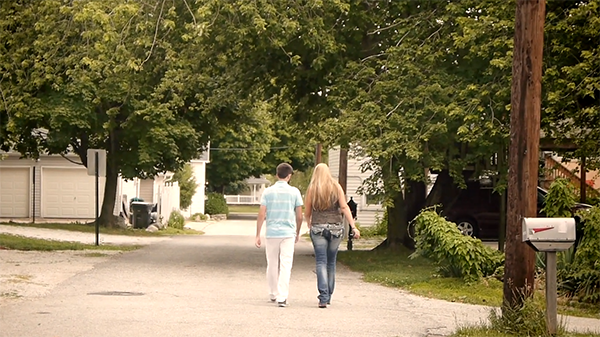If you are looking at this site, you or one of your family members has likely recently received a diagnosis of myotonic dystrophy (DM). This news can be overwhelming, and it may take some time for you and your family to adjust. We hope this site will help you navigate the path of myotonic dystrophy; our goal is to provide you with accurate information about DM and share the experiences of other people who are living with this disorder.
Note: Medical information available on this site is designed as general information only. Consult with a physician or other qualified medical professionals for advice on medical treatment.
Myotonic dystrophy (often shortened to “DM”) is a genetic disorder that affects many parts of the body. There are different types of DM, and some cause more serious problems than others. There is currently no cure for myotonic dystrophy, but there is a lot you can do to improve your quality of life by taking part in your care and actively managing your symptoms. Read our FAQs page for more information.
New discoveries about the disorder and how it can be treated are coming to light almost every day, but for the most part myotonic dystrophy is not well understood by the general medical community. You’ll want to learn as much as you can about the condition so you can talk to your doctors and educate the people around you. Sign up for our monthly newsletter to stay up-to-date with research advances, daily living and care strategies, community stories, and upcoming events.
How DM Affects Your Body
Myotonic dystrophy is a very complicated condition. The symptoms and disease progression can vary widely. The effects can be quite different even among members of the same family, so it’s almost impossible to predict just how the disorder will affect any individual. One person may only have mild muscle pain or cataracts that develop in later years, while someone else with the condition may be born with serious breathing problems.
The most common effects of DM are muscle problems, including muscle weakness (myopathy), trouble relaxing a muscle (myotonia), and muscle wasting that gets worse over time (atrophy). However, it is misleading to think of DM as only a muscle disorder because it also affects many other body functions, including the heart, lungs, and gastrointestinal (GI) system. The disorder can also cause problems with cognitive function, personality, and vision. Not everyone with DM will have all or even most of the possible symptoms. Visit the Body Systems Tool for more details on how DM can affect your body.
A Short To Do List for Newly Diagnosed Families
The Myotonic Dystrophy Foundation has a comprehensive array of resources available for newly-diagnosed families, available via the Support & Care link on this website. Below are links to some of our most commonly requested resources:
- Order a Myotonic Dystrophy Toolkit
- Join the Myotonic Dystrophy Family Registry
- Download the Anesthesia Guidelines
- Find a doctor or other DM medical professional near you
- Request support from our professionally-staffed Warmline
- Sign up for emails from the Myotonic Dystrophy Foundation
- Find a local support group near you
- Learn about DM Research Studies and Clinical Trials
- Obtain Disability Benefits (for U.S. residents only)
Questions? Contact the Myotonic Dystrophy Foundation for more information via email or phone us at 415-800-7777.


